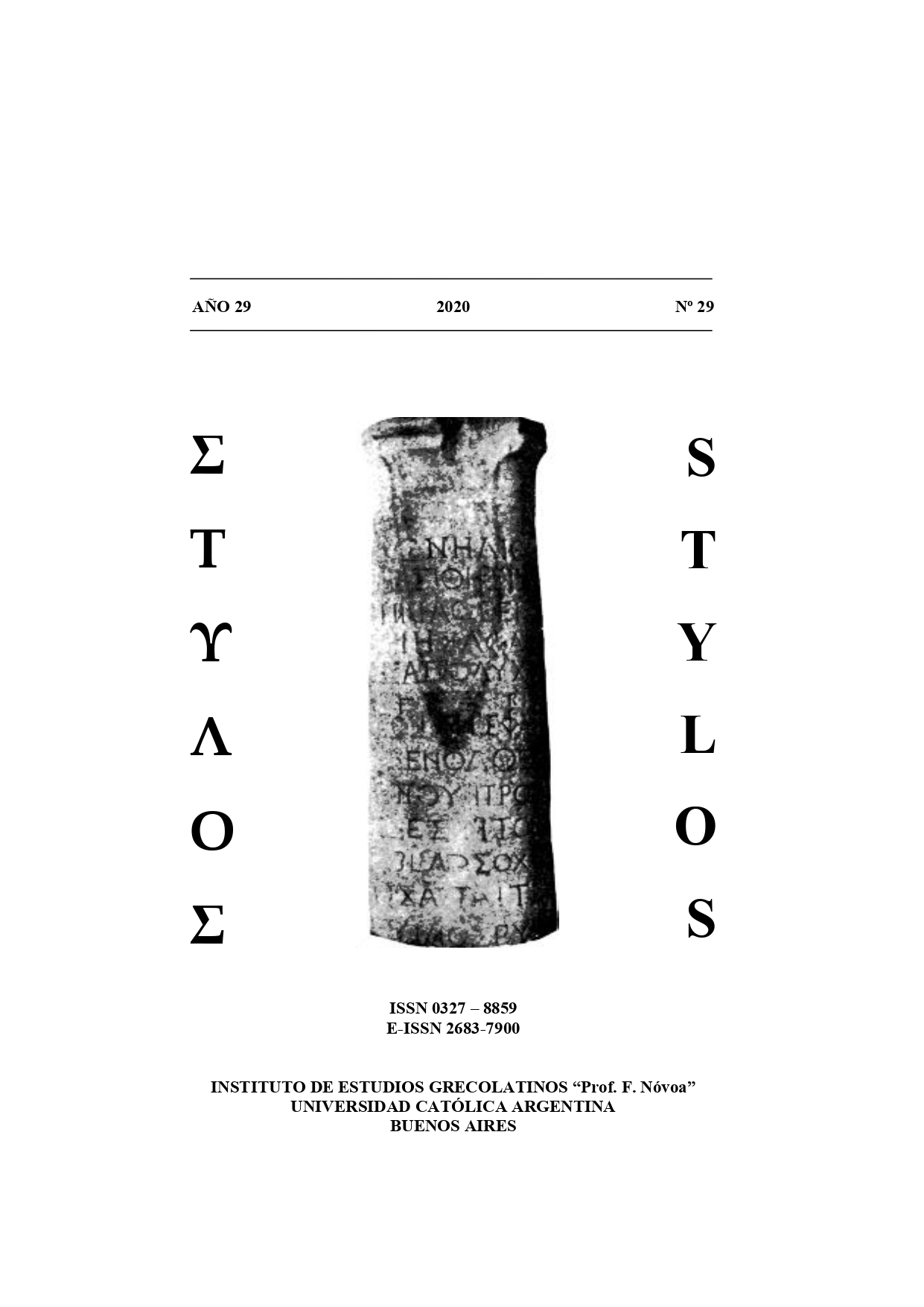LA DIMENSIÓN PERSONAL Y SOCIAL DE LA AMISTAD ESTOICA
Keywords:
Stoicism, friendship, concord, Chrysippus, SenecaAbstract
In this paper I argue that, even though friendship does not receive a specific treatment among the fundamental ethical topics in Stoicism, it is relevant for the Stoic theory of good. I also state that the “Stoic friendship” matches quite well with the so-called “genera of being” and especially with the genus “what is somehow disposed in respect of something” (πρός τί πως ἔχον). In §2 I provide some clarifications regarding the term φιλία as well as the Platonic and Aristotelian background to the Stoic friendship. At this section I also give the details of the Stoic conceptualization of φιλία and show how the Stoics explain it in the framework of their theory of the genera of being. In §3 I present Seneca’s version of friendship and highlight some details that evoke some Chrysippean discussions. Finally, in §4 I discuss some aspects of Stoic friendship understood in its “social or political” dimension (i.e. friendship as concord: ὁμόνοια) and furnish some concluding remarks.
Downloads
References
ARNIM VON, I. Stoicorum Veterum Fragmenta, Stuttgart, Teubner, 1903-1905 (3 vols. con un cuarto volumen con índices de M. Adler publicado en 1924; SVF), (se cita con la sigla SVF, seguida del número de volumen, en número romano, y el número de texto, en números arábigos).
BANATEANU, A., 2001. La théorie stoïcienne de l’amitié. Essai de reconstruction, Fribourg : Éditions Universitaires de Fribourg-Éditions du Cerf, 2001.
BARNEY, R., “A Puzzle in Stoic Ethics”, Oxford Studies in Ancient Philosophy 2003 XXIV: 303-340.
BOERI, M. D., “Aristotelian Elements in Early Stoicism”, Liverpool Classical Monthly 1993 18.3: 37-39.
BOERI, M. D., “Ser y géneros del ser en el estoicismo antiguo. Una distinción ontológica importante aplicada a la ética y teoría de la acción”, Pensamiento (Revista de investigación e información filosófica) 2010 66. 247: 55-81.
BOERI, M. D. Y SALLES, R., Los Filósofos Estoicos: Ontología, Lógica, Física y Ética (Traducción, comentario filosófico y edición anotada de los principales textos griegos y latinos) (Studies in Ancient Philosophy, Band 12), Sankt Augustin, Academia Verlag, 2014 (se cita con la sigla BS, seguido del número de capítulo y del de texto).
COSTA, I. E., Platón. Lisis (Traducción, introducción y notas de Ivana E. Costa), Buenos Aires: Colihue Clásica, 2019.
GEACH, P., God and the Soul, London: Routledge and Kegan Paul, 1969.
KONSTAN, D., Friendship in the Classical World, Cambridge: Cambridge University Press, 1997.
KONSTAN, D., The Emotions of the Ancient Greeks: Studies in Aristotle and Classical Literature. Toronto-Buffalo-London: University of Toronto Press, 2006.
LONG, A. A., “Friendship and Friends in the Stoic Theory of the Good Life”, 218-239. En D. CALUORI (ed.) Thinking about Friendship. Historical and Contemporary Philosophical Perspectives, New York: Palgrave McMillan, 2013.
MENN, S., “The Stoic Theory of Categories”, Oxford Studies in Ancient Philosophy 1999: 215-247.
WACHSMUTH, C., HENSE, O., Eclogae Physicae et Ethicae, Ioannis Stobaei Anthologium, 5 vols. Berlin: Weidmann, 1884-1912 (se cita con la sigla Ecl. seguida del número de libro, número de página y línea en esta edición).
Downloads
Published
How to Cite
Issue
Section
License






